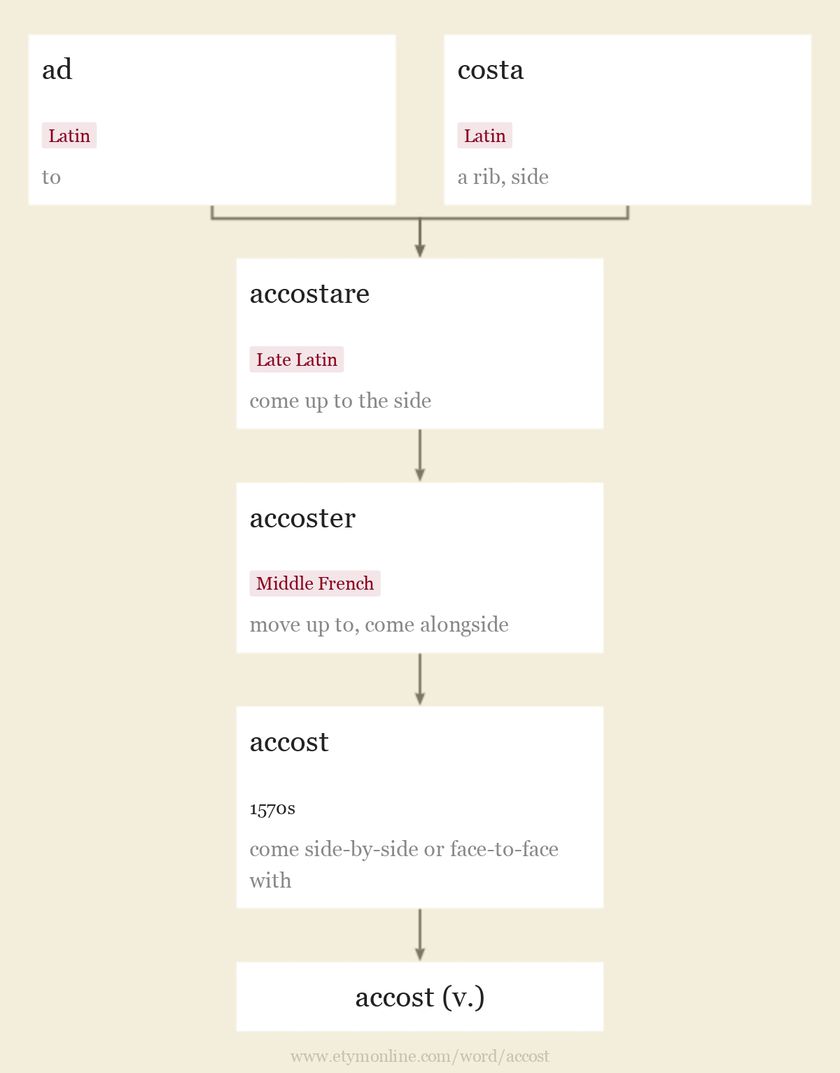accost 뜻
접근하다; 말을 걸다; 맞닥뜨리다
accost 어원
accost(v.)
1570년대, "어깨를 나란히 하거나 정면으로 마주치다"라는 의미로, 프랑스어 accoster "다가가다, 옆에 오다" (고대 프랑스어 acoster)에서 유래, 후기 라틴어 accostare "옆으로 다가가다"에서 유래, 라틴어 ad "에게" (참조 ad-) + costa "갈비, 옆면" (참조 coast (n.))의 동화된 형태에서 유래. 현재는 주로 "다가가서 이야기하다" (1610년대)의 의미로 사용됨. 또한 매춘부가 고객을 유인하는 동사로 채택됨 (1812년). 관련: Accosted; accosting.
Infamous houses, he states, are in all parts of the metropolis, but most numerous in small streets, leading from public thoroughfares. "Some of them adjoin churches, chapels, and even the courts of law. There is one locality in which vicious women accost persons as they issue from the door of a chapel on the Sabbath. In another situation, the officiating clergyman while in the pulpit, is in a position to witness the proceedings in a contiguous brothel." [Michael Ryan, M.D., "Prostitution in London," 1839]
그는 악명이 높은 집들이 도시의 모든 지역에 있지만, 공공 도로에서 이어지는 작은 거리에서 가장 많이 존재한다고 설명한다. "그들 중 일부는 교회, 예배당, 심지어 법원과 인접해 있다. 어떤 지역에서는 악한 여성들이 안식일에 예배당 문을 나서는 사람들에게 다가선다. 또 다른 장소에서는, 설교자가 강단에 있을 때, 인접한 매춘굴에서의 행위를 목격할 수 있는 위치에 있다." [Michael Ryan, M.D., "Prostitution in London," 1839]

연결된 항목:
accost 공유하기
AI-생성 번역. 원본 페이지 보기: Etymology, origin and meaning of accost
인기 검색어
